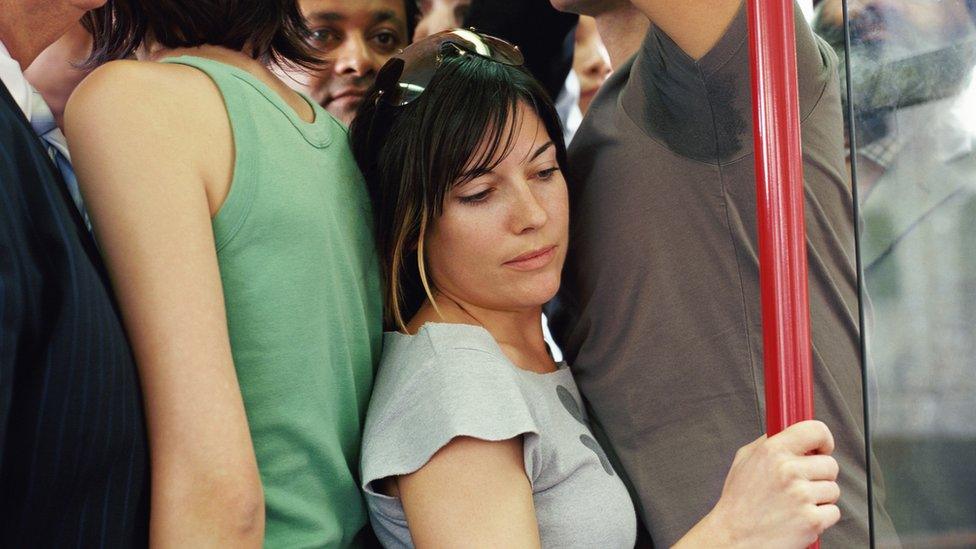Future on the line in Southern rail dispute
- Published
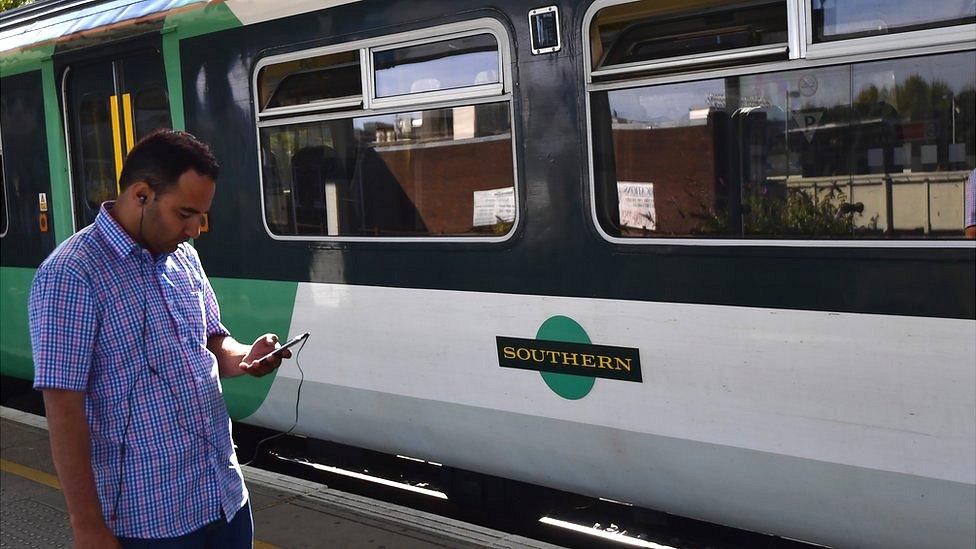
At a time when the driverless car is said to be just around the corner, the rail dispute that has brought five days of strike action to Southern trains seems to belong to another age.
The trend in transport systems is towards growing automation. But it seems that plans for drivers to operate train carriage doors instead of guards can still cause industrial strife.
Not so long ago, such a change would not have been possible. As recently as 2005, external, some Southern services were still using old-fashioned "slam-door" carriages, which could be opened at any time, even while the train was moving.
These were phased out on safety grounds and replaced by sliding doors, which can be centrally locked. The question now is, who should do the locking?
As far as the Rail, Maritime and Transport (RMT) union is concerned, safety is still an important issue, and one which also forms part of its separate dispute with Virgin East Coast, where workers have also just voted to go on strike.
The RMT says that guards are needed on trains for more than just operating doors, and if that role is taken away from them, they will eventually disappear altogether, leaving no-one to protect passengers from robbery or physical attack.
Southern's response is that no-one will lose their job as a result of the change. Guards will remain on trains, but they will become "on-board supervisors", making them more, not less responsive to passengers' needs.
In the latest development, Southern has said it is prepared to have talks "any time, any place, anywhere" with the RMT in an effort to break the deadlock.
The RMT, for its part, has accused the government of blocking a deal.
Staff sickness
Southern says 40% of its services already have "driver-only operation", while the Rail Accident Investigation Branch, part of the Department for Transport, says it has found "no evidence" that driver-only trains are unsafe.
On the other hand, Southern has said that the change will allow trains to run without a guard in the event of staff shortages, reducing the number of cancelled services.
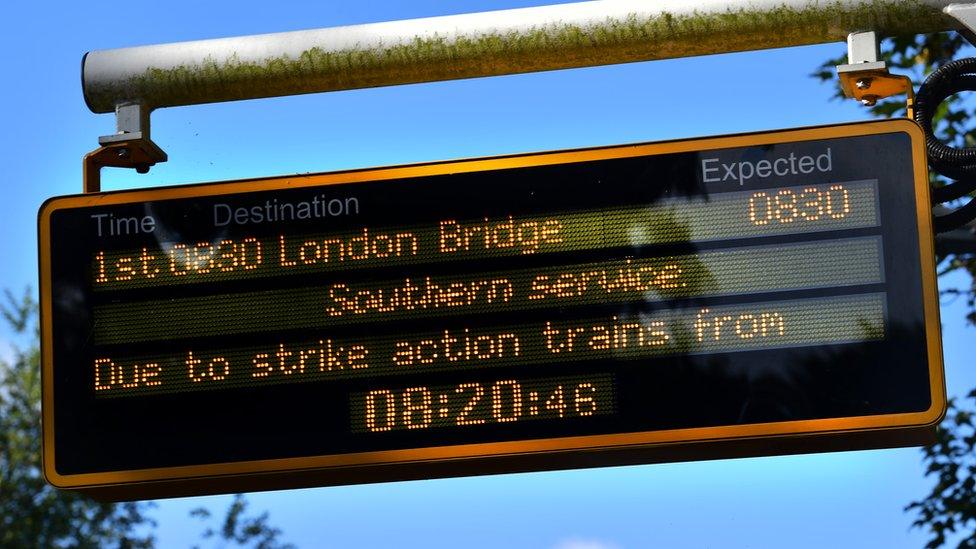
This is a particular issue for the company, which has had to cancel large numbers of trains in recent months because of guards calling in sick.
Southern says this amounts to "unofficial industrial action", while the RMT says Southern is not recruiting enough staff and that many of its members are suffering from work-related stress.
Whatever the truth of the matter, it suggests that there is more to this dispute than a mere reallocation of roles.
The RMT certainly thinks that the possibility of allowing trains to leave the station without a guard on board strengthens its argument that there will be job losses in future.
So who is suffering most from this five-day strike? The RMT's members are certainly paying for their action, since they lose a week's pay, but that hardly seems to have dented their resolve.
Even so, they have failed to bring the network to a standstill, since Southern has said roughly half its trains are operating as normal - and since that "normal" level actually refers to an emergency timetable that already involves hundreds of cancellations, hard-pressed commuters may feel that the service can scarcely get any worse.
As for Southern, the system of government subsidies for rail franchises means that the company suffers little short-term financial penalty from the dispute. It also has a near-monopoly on many of the lines that it operates, so passengers have nowhere else to go.
'Digital railway'
So how and when is this disruption likely to end? Well, in the long run, technology is almost certain to win out - but it's unclear how long that will take.
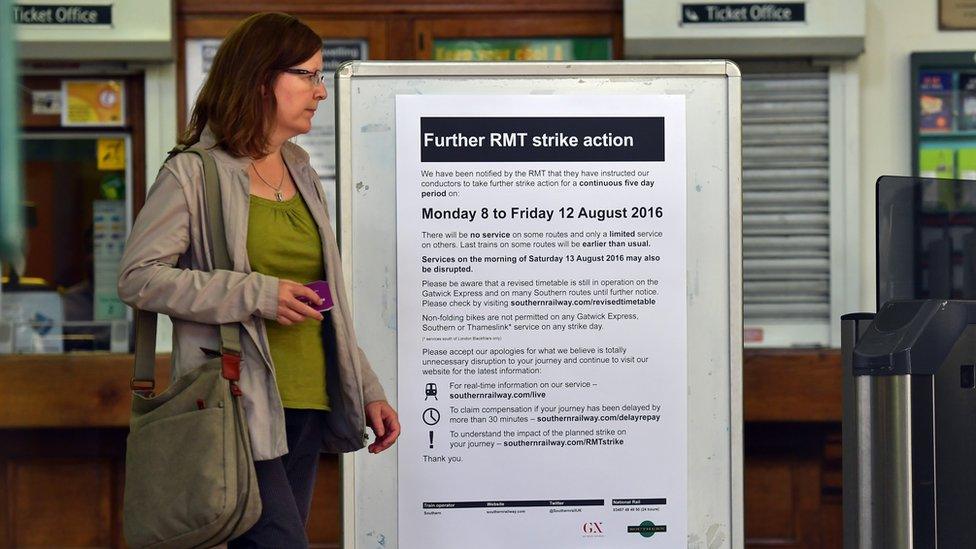
Some rail trade unionists acknowledge that one day, the railway service is likely to be fully automated, with even train drivers becoming a thing of the past.
Mick Whelan, general secretary of train drivers' union Aslef, which is not involved in the Southern dispute, told the BBC: "We will have a digital railway some time in the future, probably not in my lifetime.
"I'm not against technology, I'm not against advancement, but it has to be brought in in a safe, better way."
With this kind of talk in the air, it's small wonder that many observers see this dispute as being about more than just carriage doors.
In their view, what's at stake is nothing less than the whole future shape of the railway industry in the 21st Century.
Unfortunately, that is of little consolation to long-suffering commuters who just want to be able to get to work on time.
There may be a shining future for the railway network, but from where they're standing, it looks a long way down the line.
- Published9 August 2016
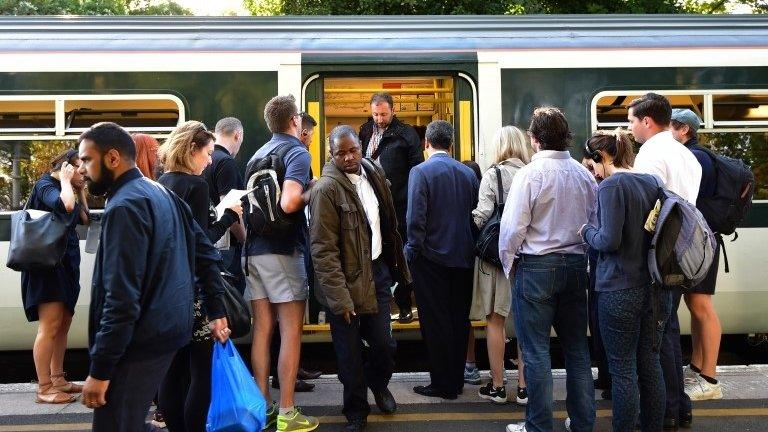
- Published8 August 2016

- Published29 May 2016
